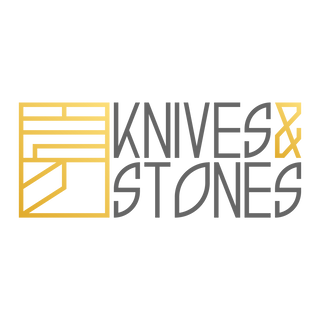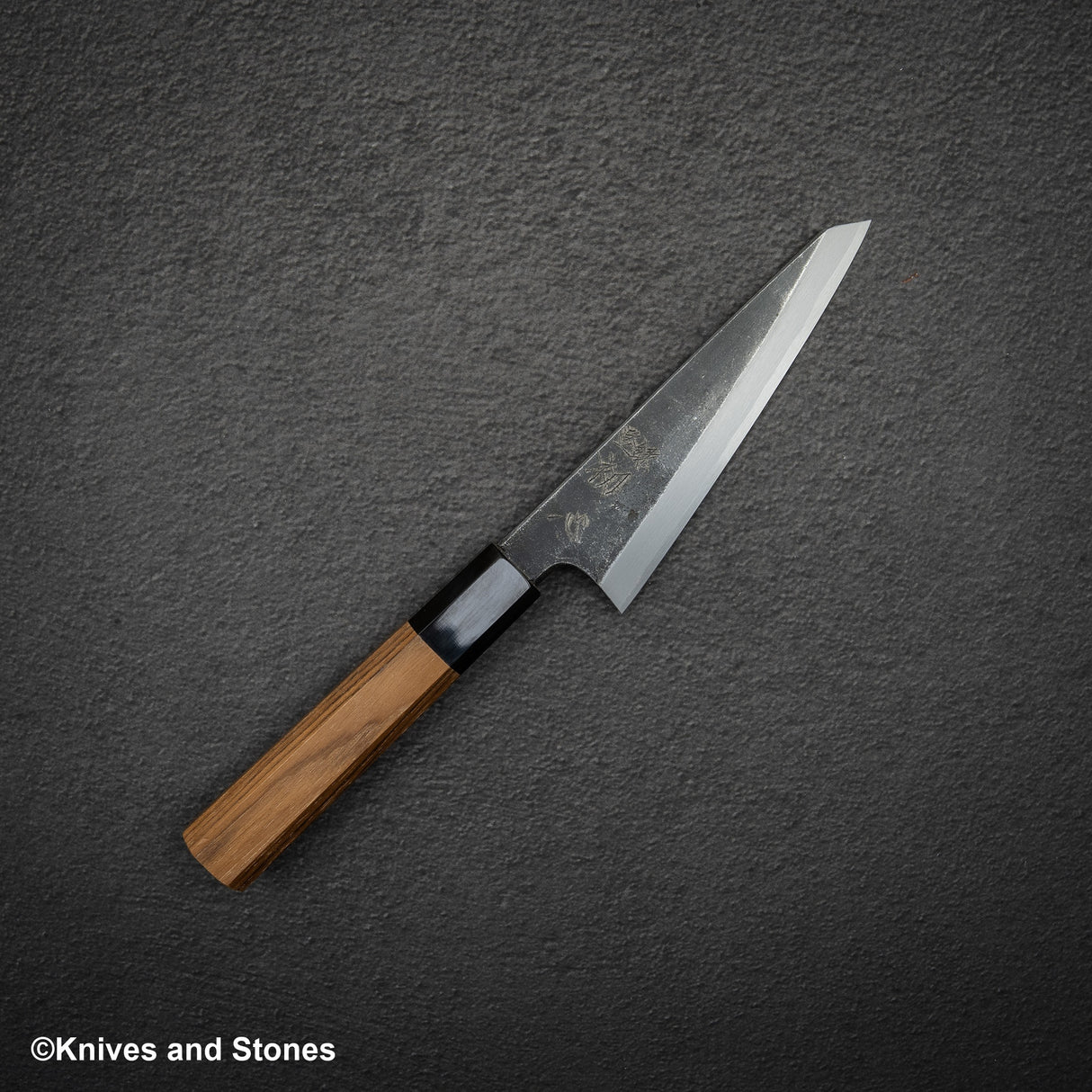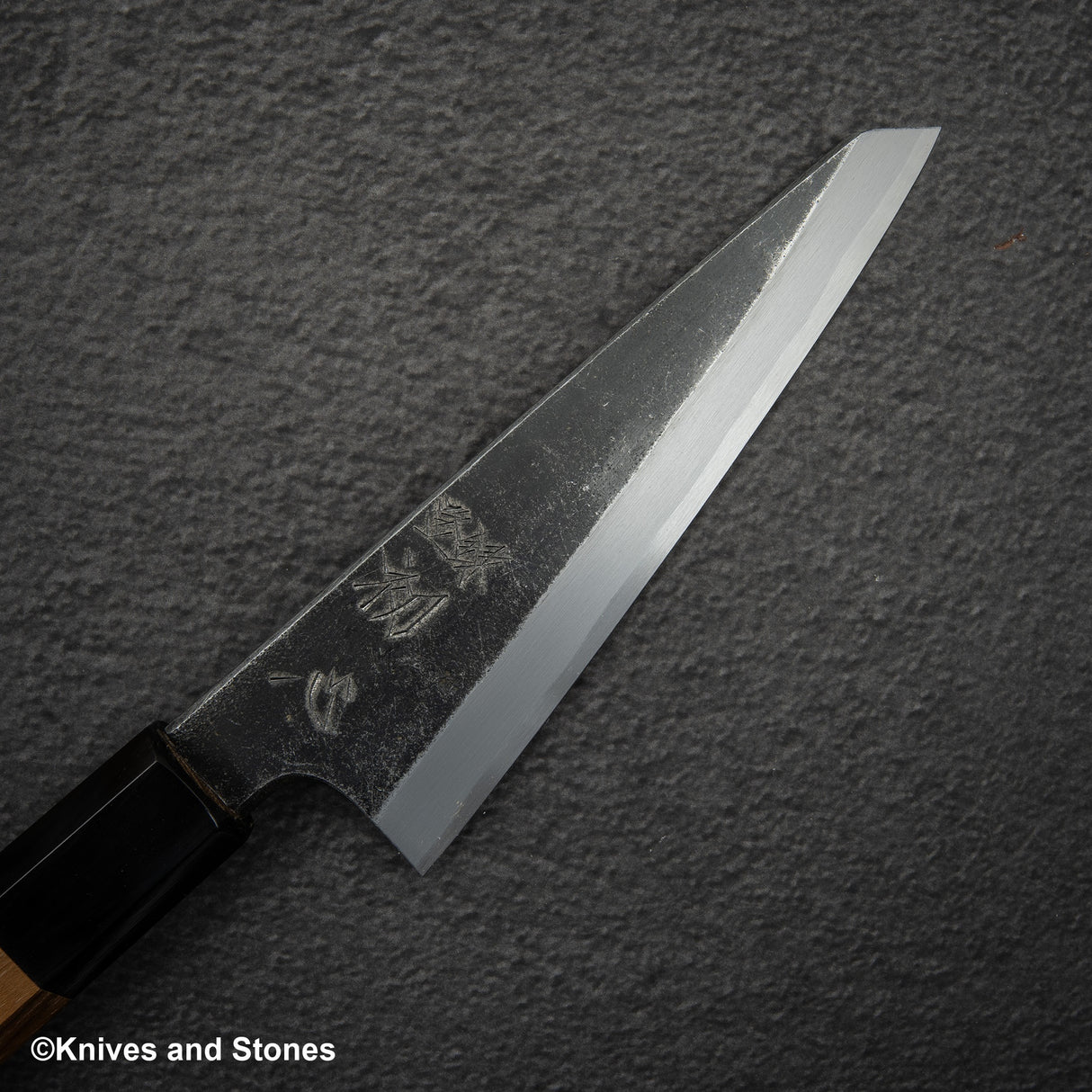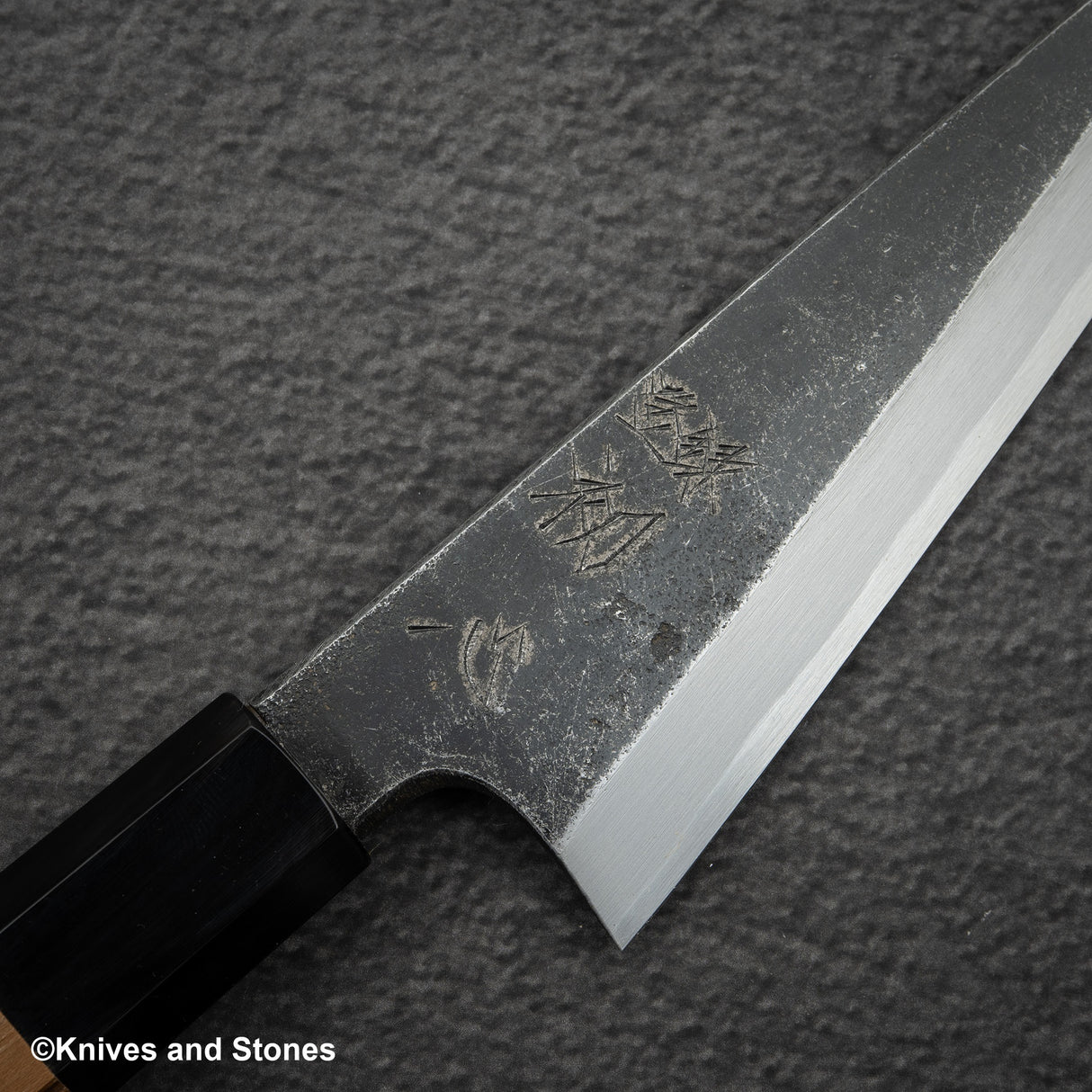The Hatsukokoro by Myojin Shirasagi(白鷺)White 2 Kasumi signle bevel is a line of "practical single bevel" knives produced by Myojin Riki Seisakusho and comisioned by Hatsukokoro. It has a twin sister line Shirasagi Blue 2 Kurouchi that offers a dofferent look made by same maker. If you are not familiar with Myojin is a father and son knife workshop based in Tosa prefecture, in the island of Shikoku. Father Tateo, is specialised in single bevel knife sharpening, whereas son Naohito Myojin specialises in double bevel knife sharpening, and Toru Tamura is their primary blacksmith.
This line as a single bevel line, is sharpened by Tateo Myojin(明神 健) and forged by Toru Tamura(田村 徹). Rarely, you can find not only the traditional profiles like yanagiba in this line, but also modern shapes like gyuto, all made in single bevel fashion. The fit and finish is superb as expected from Myojin Riki Seisakusho, a very uniform finish can be seen across the entire blade, even on the Kissaki of the Sakimaru Yanagiba, some other knives at highter price can have some trouble achieving that. Hatsukokoro have given this well-finished line a well deserved name Kirasagi(Little Egret), the smooth Migaki and Kasumi polish can be found found all across the blade, which build a beautiful imagery to the clean white feather of the egret.
The line has few single bevel Gyuto options, which are quite unusual. They could be a way to try out the single bevel knife without limiting yourself to the very specific task like Yanagiba or Deba does, but the significantly thicker spine does increases the weight and resistance when cutting into food. The offset cutting direction of single bevel knife as well as the carbon steel-soft iron cladding combo limit the usage scenario of these blades.
However, the traditional profiles like Yanagiba in this line are very good in terms of their value. The Yanagiba in this line have a maching if not a superior fit and finish compare to the Masamoto KS Kasumi line, but with the same steel and size, they comes at half of the price. If you have been keeping that Masamoto in cart for a long time but also been hesitating hitting that buy button due to the price tag, maybe look at this Shirasagi line as an alternative.



















